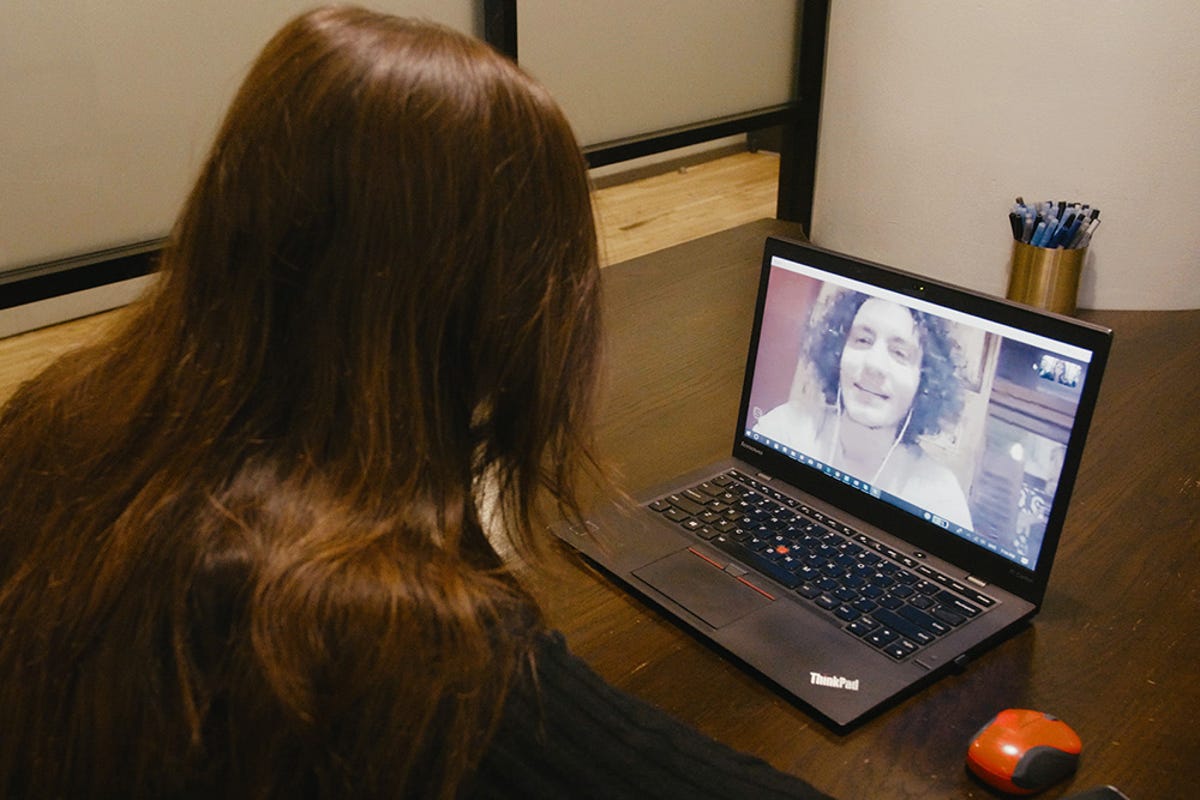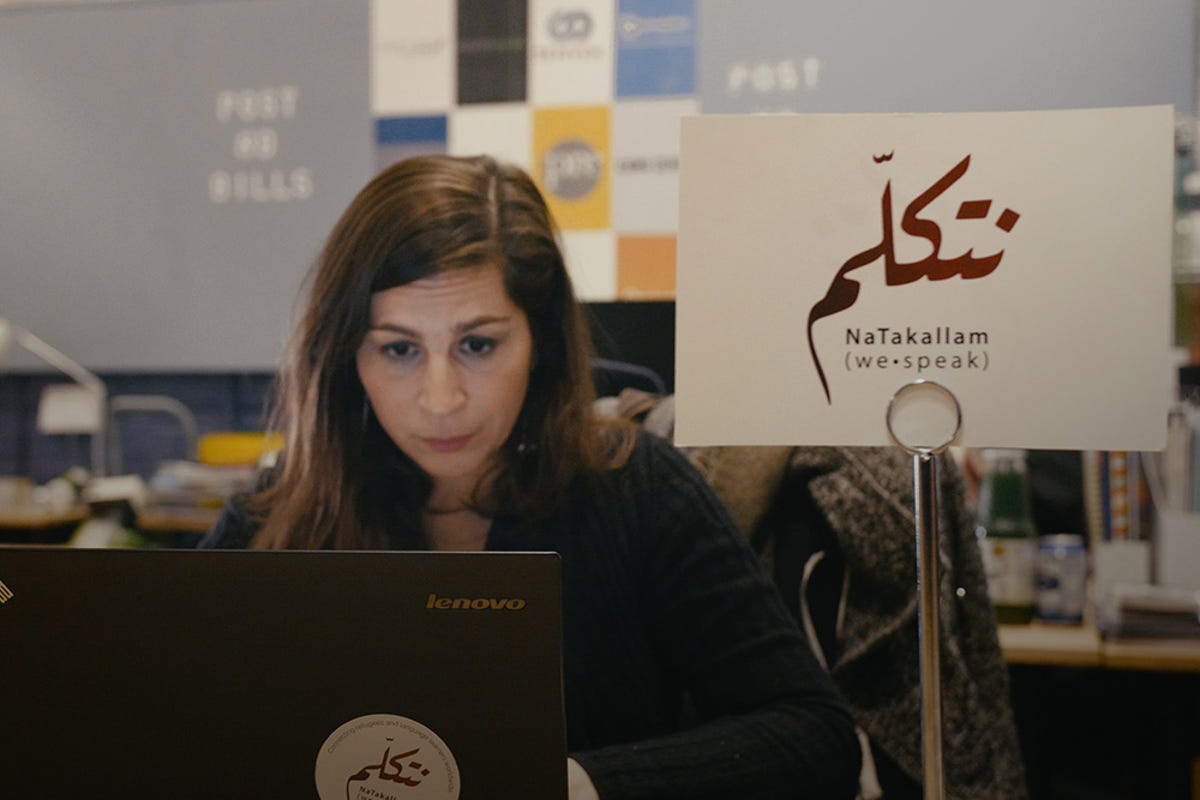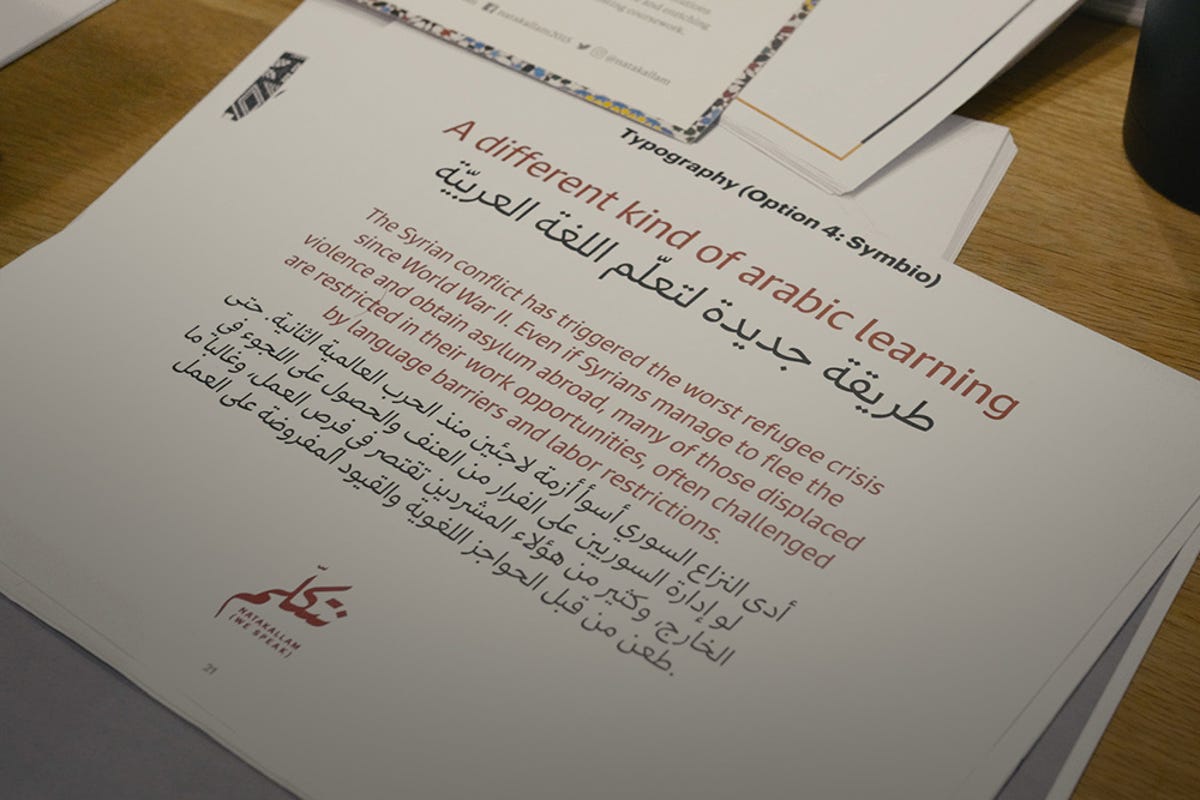Fellow Portrait
Aline Sara
NaTakallam
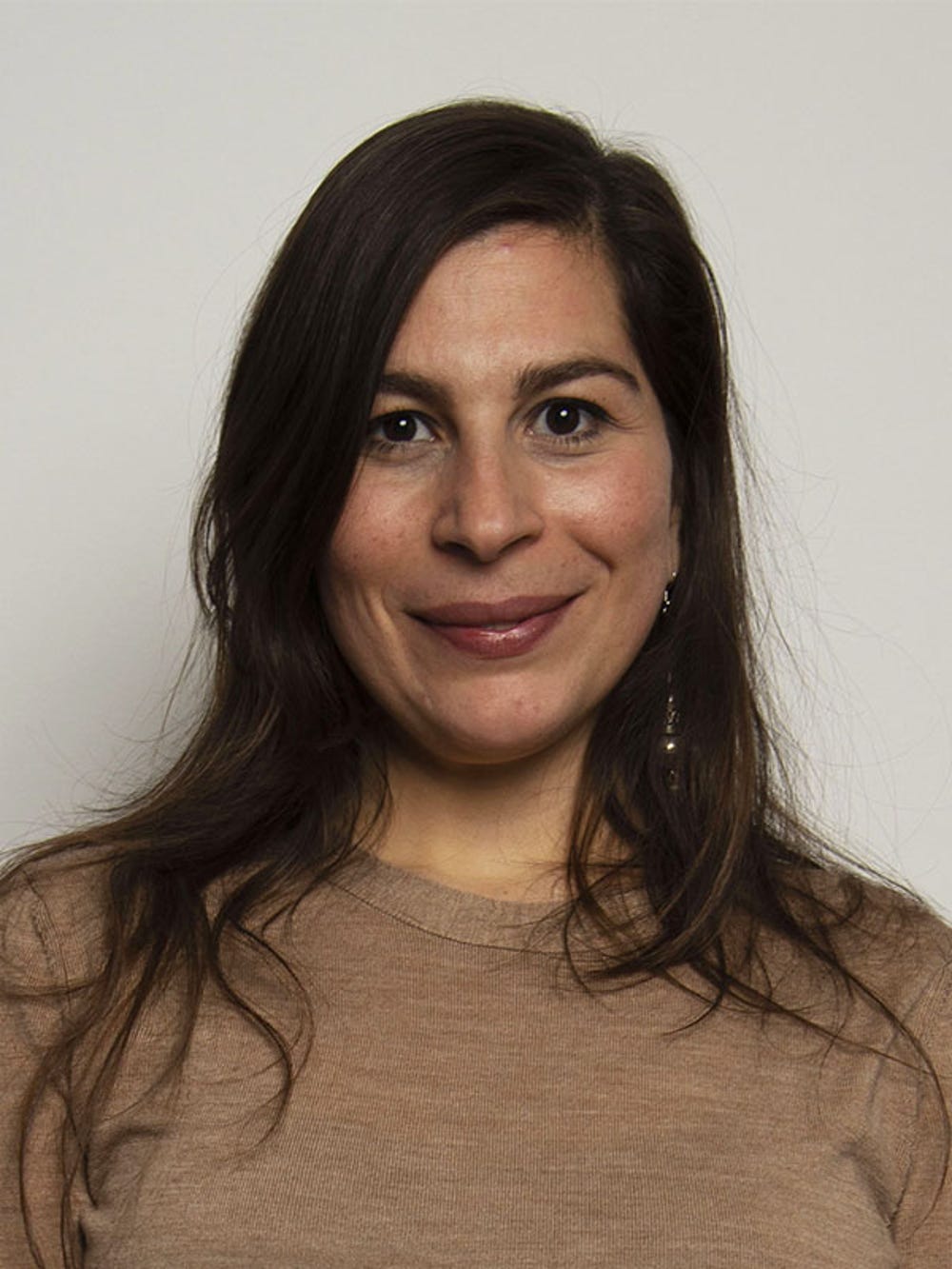
Updated March 2019
When Aline Sara moved to Beirut in 2006 to launch a career in human rights and conflict resolution, she found herself struggling at times with Arabic. Despite her Lebanese descent, she had lived in the US since childhood and had lacked occasions to practice it. After becoming a journalist in the region during the years that led to the Arab Uprisings – events that would displace millions of people, primarily from Libya and Syria – in 2012 Aline returned to America to study a Masters at Columbia. But the seeds for her business had been planted. In 2015, she pitched her venture at a start-up competition and garnered enough interest to take it further.
I didn’t choose entrepreneurship, it chose me.
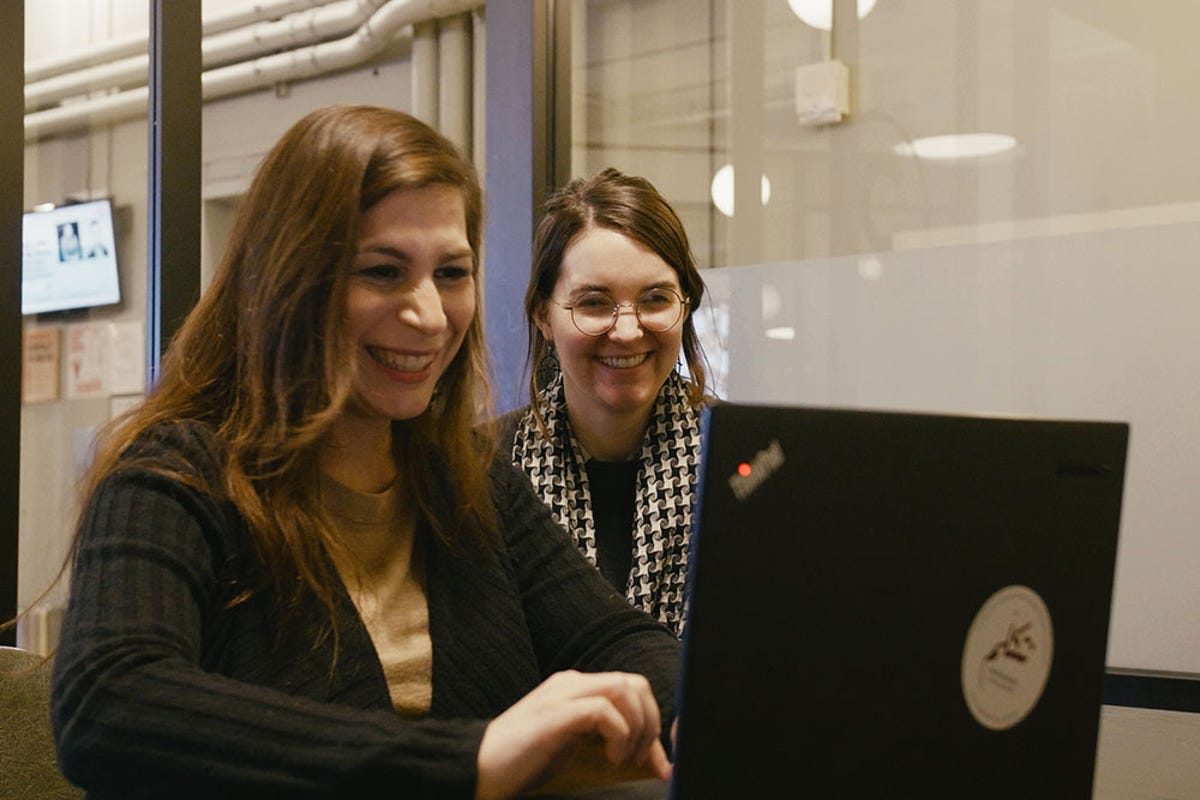
Leveraging the gig economy
NaTakallam, which means “We Speak” in Arabic, connects displaced people and refugees with clients seeking language and translation services. Launched in 2016 to bring vital income to Syrian refugees displaced from their homeland – now a staggering 5.7 million people, according to UNHCR figures, including 1 million in Lebanon alone – its innovative humanitarian approach offers these populations a much-needed lifeline. Devoid of work permits and status but frequently highly educated, refugees have been cut off from their roots yet are connected to the cloud via smartphones. “Some 30% of the refugees we work with are trained teachers, but we also have engineers, journalists and architects,” says Aline. “NaTakallam leverages the gig economy to connect them with language-based opportunities, taking them out of isolation.”
To make the first connections, Aline and her team reached out to their networks and NGOs working in the Middle East. “At first it was word of mouth, and then it went quite viral,” she recalls. “We went from 20 visits a day to several thousand in one week, creating 300 student signups.” Launched with an initial offer of online Arabic conversation classes, NaTakallam now proposes services ranging from translation, interpretation and transcription to an Arabic curriculum in partnership with Cornell University. Other languages include Persian and Spanish, the latter a recent addition to address the pressing needs of Venezuelan refugees.
We are facing the biggest global migration crisis of our time, and the current global resettlement and humanitarian systems are broken.
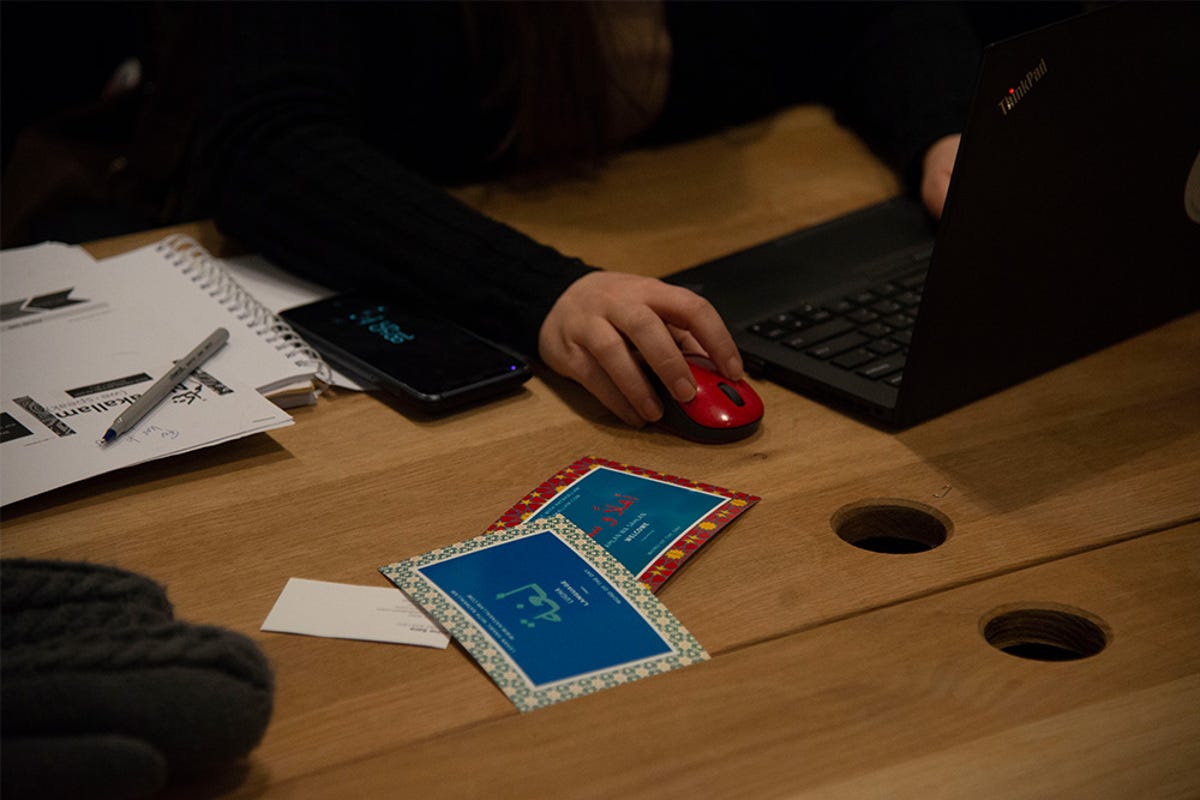
Feet on the ground
Conversation partners earn an average $10 an hour, rising to $70 for structured language courses: to date, NaTakallam’s 140 freelancers have generated $500,000 in revenue for themselves and connected to over 4,500 users. Aline has forged partnerships with 70 schools and 20 universities and raised significant funding, but is building her business carefully. “We want to shoot for the moon but we are also realistic, and this has been helpful to foster trust with investors and donors.” The company’s eight permanent staff are dispatched around four offices in New York, Paris, Cairo and Beirut.
People who are working for impact should look first and foremost at the way to reach that goal, and nothing else. That can often come through leveraging partnerships and finding people who complement what they have to offer.
Meaningful connections
With a tense global context creating growing numbers of migrant populations, NaTakallam has attracted much attention and received several accolades. Most meaningful to this young CEO, however, is the positive impact it has on the morale of those it works with. “They tell us how highly they value the chance to make connections and communicate their culture, to show the world who they really are and change the narrative.” To this effect, the friendships NaTakallam’s refugees have formed and the personal visits students pay them are the most eloquent testimonials, in any language.
